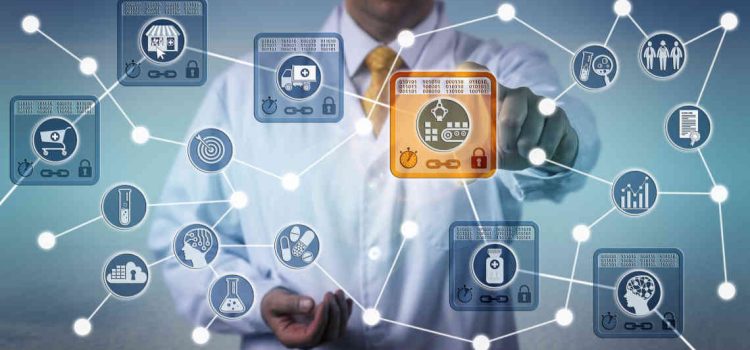
In the rapidly evolving landscape of healthcare, one of the most pressing concerns is the security of health data. With the increasing digitization of medical records and the rise of telemedicine, ensuring the confidentiality, integrity, and availability of health information has never been more critical. Enter blockchain technology—a decentralized, immutable ledger system that is poised to revolutionize health data security.
The Current Landscape of Health Data Security
Before delving into how blockchain can transform health data security, it is essential to understand the existing challenges. Traditional health data storage systems are often centralized, making them vulnerable to cyber-attacks. Data breaches in healthcare are alarmingly common, with millions of patient records compromised annually. These breaches not only jeopardize patient privacy but also erode trust in healthcare institutions.
Moreover, the interoperability of health data across different systems remains a significant hurdle. Healthcare providers often struggle to share patient information securely and efficiently, leading to fragmented care and increased costs. In this context, blockchain technology offers a promising solution.
What is Blockchain Technology?
Blockchain is a distributed ledger technology that allows data to be stored across a network of computers in a way that ensures transparency, security, and immutability. Each block in the blockchain contains a list of transactions, and once a block is added to the chain, it cannot be altered or deleted. This makes blockchain an ideal candidate for applications requiring high levels of data integrity and security.
How Blockchain Enhances Health Data Security
Decentralization
One of the most significant advantages of blockchain technology is its decentralized nature. Unlike traditional centralized databases, where a single point of failure can compromise the entire system, blockchain distributes data across a network of nodes. This decentralization makes it exceedingly difficult for hackers to corrupt or steal data, as they would need to compromise a majority of the nodes simultaneously.
Immutability
The immutability of blockchain records ensures that once data is entered, it cannot be altered or deleted. This feature is particularly valuable in healthcare, where the integrity of medical records is paramount. Any attempt to tamper with the data would be immediately evident, making blockchain an excellent tool for maintaining accurate and trustworthy health records.
Enhanced Privacy
Blockchain can also enhance patient privacy through advanced cryptographic techniques. Patients can control who has access to their data and can grant or revoke permissions as needed. This level of control is a significant improvement over traditional systems, where patients often have little say in how their data is used or shared.
Interoperability
Interoperability is another area where blockchain technology shines. By providing a standardized and secure framework for data exchange, blockchain can facilitate seamless sharing of health information across different systems and providers. This interoperability can lead to more coordinated and efficient care, ultimately improving patient outcomes.
Smart Contracts
Smart contracts are self-executing contracts with the terms of the agreement directly written into code. In healthcare, smart contracts can automate various processes, such as insurance claims and patient consent, reducing administrative burdens and minimizing the risk of errors or fraud. These contracts can be programmed to trigger actions only when specific conditions are met, ensuring that all parties adhere to agreed-upon terms.

Real-World Applications of Blockchain in Health Data Security
Electronic Health Records (EHRs)
One of the most promising applications of blockchain in healthcare is the management of Electronic Health Records (EHRs). Blockchain can provide a secure, tamper-proof platform for storing and sharing EHRs. Several pilot projects and startups are already exploring this potential. For instance, Medicalchain and Guardtime are developing blockchain-based solutions to enhance the security and interoperability of health records.
Clinical Trials
Blockchain can also play a crucial role in clinical trials by ensuring the integrity and transparency of data. Clinical trials generate vast amounts of data that need to be securely stored and shared among various stakeholders. Blockchain can provide a transparent and immutable record of all trial activities, from participant recruitment to data analysis, thereby enhancing trust and compliance.
Supply Chain Management
The healthcare supply chain is another area ripe for blockchain disruption. From tracking the provenance of pharmaceuticals to ensuring the authenticity of medical devices, blockchain can provide an immutable record of every transaction in the supply chain. This transparency can help combat counterfeit drugs and ensure that medical products are safe and reliable.
Telemedicine
With the rise of telemedicine, the secure exchange of health data between patients and providers has become increasingly important. Blockchain can offer a secure platform for telemedicine consultations, ensuring that patient data is protected and only accessible to authorized parties. This can enhance patient trust and encourage wider adoption of telemedicine services.
Challenges and Future Directions
While the potential of blockchain technology in transforming health data security is immense, several challenges remain. Scalability is a significant concern, as the current blockchain infrastructure may struggle to handle the vast amounts of data generated by the healthcare industry. Additionally, the integration of blockchain with existing healthcare systems and regulations requires careful planning and coordination.
Moreover, the adoption of blockchain technology in healthcare will necessitate a cultural shift. Healthcare providers, patients, and regulators must be educated about the benefits and limitations of blockchain to foster widespread acceptance and trust.
Despite these challenges, the future of blockchain in healthcare looks promising. As the technology matures and more pilot projects demonstrate its efficacy, we can expect to see broader adoption and integration of blockchain solutions in health data security.
Conclusion
Blockchain technology has the potential to revolutionize health data security by offering a decentralized, immutable, and transparent platform for storing and sharing medical information. From enhancing the security of Electronic Health Records to ensuring the integrity of clinical trials and supply chains, blockchain can address many of the current challenges in healthcare data management. While there are hurdles to overcome, the promise of a more secure and efficient healthcare system makes the exploration and adoption of blockchain technology a worthwhile endeavor. As we continue to navigate the complexities of digital health, blockchain stands out as a beacon of innovation and security.










